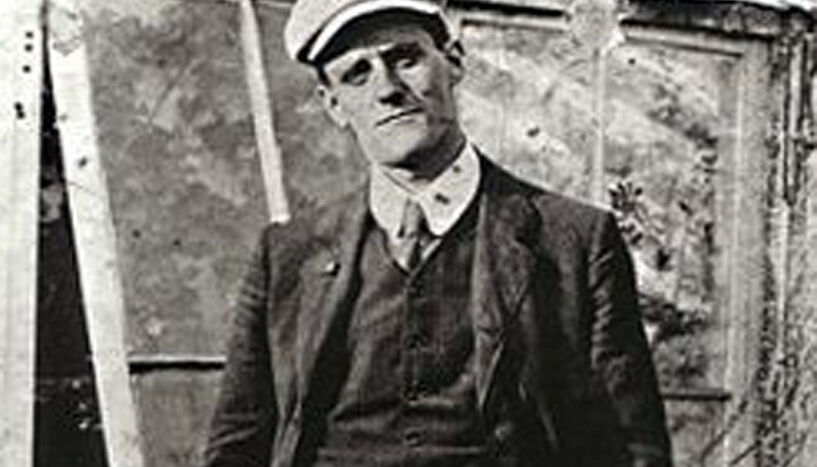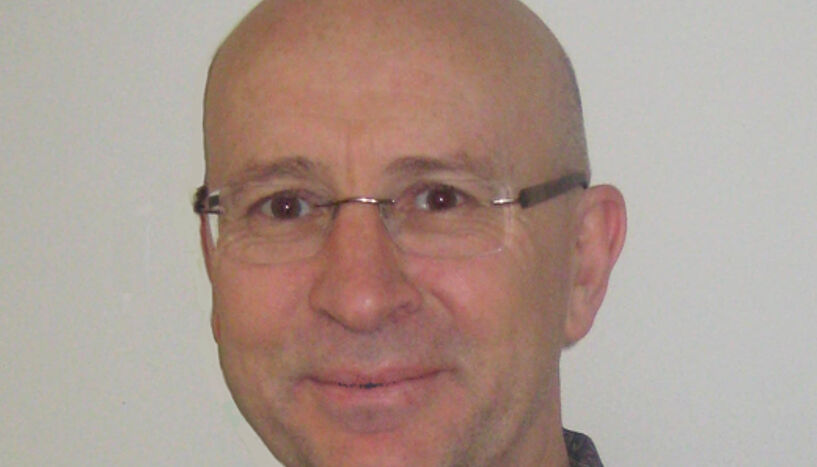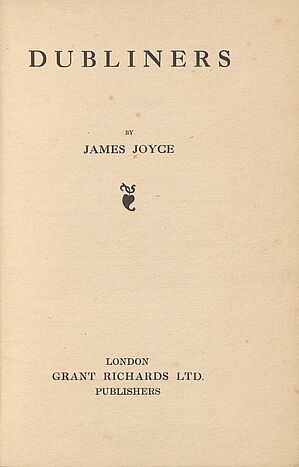Gerry Smyth: James Joyce and a great deal of music
| 13. Januar 2011In cooperation with the Embassy of Ireland, the University of Vienna implemented a Visiting Professorship Programme in Irish Studies in October 2009. Since then several visiting scholars have been lecturing at the Department of English and American Studies. Currently affiliated with the University is Gerry Smyth, Liverpool John Moores University. Not only does he share his knowledge of Irish literature and music with his Viennese students, he has also been known to occasionally entertain with interpretations of Irish and English folk songs.
"I've been a wild rover for many's the year, I've spent all my money on whiskey and beer. But now I'm returning with gold in great store, And I never will play the wild rover no more." These are the first lines of the Irish folk song "Wild Rover" I was treated to when I met Gerry Smyth in his office at the Department of English and American Studies. "The theme of this traditional song is similar to the parable of the Prodigal Son in the Bible. The younger son goes out into the world, wasting his life and the resources given to him, whereas the older son keeps serving his family. Nevertheless, when he returns home, the father celebrates their reunion", Gerry Smyth explains while packing his travel guitar away, which would be used once more that day at the Department’s Christmas celebrations.
After working as a professional musician in Spain for some years, Smyth, born in Ireland, started studying in the Northwest of England. He did his Masters in Cultural Studies at Lancaster University and his PhD on Postcolonial Theory and Irish Literature in Stafford. Since then the father of four children has been working at Liverpool John Moores University. He frequently goes abroad to lecture in various European countries and the United States. "My experiences in Austria have been great. The students are focused, very diligent with regard to preparation and work and their English is fantastic", Smyth says.
The "Noisy Island"
In an attempt to bring his professional interest as a researcher and his personal interest in music together, the scholar has dedicated around ten years of research into Irish popular music. His publication "Noisy Island: A Short History of Irish Popular Music" combines expertise in Irish cultural history and popular music studies. The study starts in the 1960s and deals with a broad range of aspects, among them the distinctive Irish response to international rock music, the emergence of traditional music and analysis of all the leading names from Irish rock history such as Van Morrison, Sinead O'Connor and U2: "I listen to a lot of music with my students and I'm trying to get them to listen to it historically. Where does it come from? What are the influences? We talk about it structurally; it is almost seen as a text in terms of dynamics, instrumentation, lyrics."
Of treason and betrayal
Smyth eventually points out that his focus has recently changed again: "That phase has come to an end. For my next book I'm moving back into researching and writing about literature. I started off writing about Irish literature in the 1990s and published a couple of books influenced by postcolonial theory on Irish literature, and then I moved on to start writing about Irish popular music because there was not much work done on it at that point."
His current project is a study of treason and betrayal in Irish cultural history: "I've been researching it for three years, but with all that has happened to Ireland in the last two years and especially in the last four months, there has been a lot of talk of betrayal and treason around on the part of politicians, bankers and the church. It is very timely."
Public Lecture: Music in James Joyce's 'The Dead'
On Thursday 20 January 2011, Gerry Smyth holds a public lecture on the representation of music in James Joyce's 'The Dead'. It is one of 15 short stories published in the book 'Dubliners' in 1914. "James Joyce was an author who was fascinated, even obsessed with music. His writing is infused with music from beginning to end. In the lecture, I’m looking at one of the most famous moments in his writing: At a party in Dublin, Gabriel is getting ready to leave and his wife is coming downstairs. Suddenly she hears singing coming from upstairs. It turns out that this song was sung to her by somebody she was in love with when she was a young girl. She is profoundly moved and it becomes a symbol of separation", the scholar describes the scene.
Thus his lecture will be dealing with the question of what this certain song was supposed to represent and what it connotes in relation to Irish culture at that point in time. Vice Rector Arthur Mettinger, the Ambassador of Ireland James Brennan, the Vice Dean of the Faculty of Philological and Cultural Studies Matthias Meyer and Werner Huber of the Department of English and American Studies will deliver opening remarks. Anybody interested in writing and music is very welcome to come and learn more about the importance of music in Joyce's work. (dh)
Public Lecture: James Joyce's 'The Dead': Contexts and Genres
Thursday 20 January 2011, 6 pm
Lecture room of the Department for Ethics and Law in Medicine, court 2.8
Spitalgasse 2-4, 1090 Vienna
Invitation (PDF)



